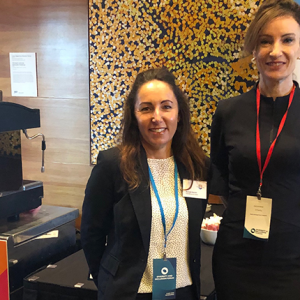One of the critical aspects to being a great leader is understanding the various cultures you are leading. Being culturally sensitive to differences in backgrounds and points of view will help you to lead a diverse team more effectively.
What is a culturally robust mindset?
A culturally robust mindset comprises many things, including your own cultural identity and values. But not all cultures share the same values — for example, some cultures prioritise family, while others place value on education and money. As a result, people from different backgrounds will have very different expectations. To build a culturally robust mindset, you must assess not only your cultural values but also other cultures as well. This will give you a broader understanding of the world and help you avoid assumptions about "what is normal."
The idea is to think critically. To do this, you need to understand more than what your own culture teaches — you also must consider other cultures. Doing so helps you build a deep understanding of the human condition — and this makes it easier to understand what others are trying to communicate.
We encourage you to try these ideas as the first steps in building a robust cultural mindset to lead your team better.
Let people share their stories:
Allowing people to tell their own stories lends them more legitimacy and authenticity. People often will take an outsider's view of a culture, but once they share their experiences within that environment, they have a better vision of working in that culture.
Speak up about bias in business:
Speaking up about biases in business takes a lot of courage. You might want to start by asking yourself the following questions: What could your organisation do to ensure opportunities are available for all types of people, particularly those who face bias in hiring and advancement?
Make connections with others outside your comfort zone. Think about the activities you can do in your free time to meet and connect with people from different groups, especially those considered "underrepresented" in your organisation.
Take the time to listen:
Allow people with diverse backgrounds to have their say, even though they may be uncomfortable speaking or sharing their stories. The more you listen, the better the picture they will have of what it's like to work in your specific company culture. Understanding how other cultures operate will help you understand people better — and make you more likely to recognise your own cultural biases.
Being present and listening to others will help you understand them more deeply. Take the time to really listen to what they have to say, instead of only hearing what you want. You should include a broad range of views in any team, project, or other entity within your company or organisation – and it's crucial that you don't just apply this mindset to those who are similar in background or experience as yourself.
Ask questions:
Keep asking open-ended questions to encourage people to talk about their experiences within your organisation. Ask them to share as many details as possible. Often, if people see themselves reflected in the painted pictures, they will feel more comfortable sharing their own experiences.
Here are some questions to ask to get the conversation rolling:
- How do people in this organisation communicate?
- Do people tend to use language that is more direct or indirect?
- What do people focus on when they work together?
- Are specific values driving our behaviours and decisions within the team or organisation?
- What makes [insert your organisation name] successful?
- What is [insert your organisation name] known for?
Learn from others:
How can you earn the trust of all kinds of people? What steps can you take to get to know people from various groups and backgrounds?
How do you know if you're developing a culturally robust mindset? You'll probably recognise it by the things you say — and the mistakes with which others correct you. Learning from others is key to helping you build a culturally robust mindset.
Attend events hosted by your local community:
Check to see if local events are being hosted that relate to the types of cultures you want to learn more about. People will be more receptive when they see that you're taking the initiative to learn more by attending these. Most importantly, it allows you to interact with people from different backgrounds.
What resources can you use to help build your cultural mindset?
Make sure that you're learning what you need to. Be sure you're utilizing the resources available to you from your company, HR department, and teammates.
What are the overall benefits of building a cultural mindset as a leader?
As a leader, you will accomplish so much more by being aware of how to navigate culture within your team and organisation. Firstly, you will be able to lead a diverse team and foster creativity by allowing for more ideas to be shared. Secondly, you will become more comfortable with different people and cultures because you've done the work of understanding them beforehand. Thirdly, you will make yourself valuable as a leader and as an individual. And finally, you'll feel more confident in your work and interactions with others.
A cultural mindset is essential for any leader to grow and will impact the entire organisation.The more we share our stories of how it's like [for us] to work in that culture, the easier it is for people to understand how to navigate within their team.
Don't let the fact that someone is different from you stop you from learning more about them. You can learn a lot by asking colleagues and others in your organisation what it's like to work with them.
If you want to be a great leader, one of the best ways to do that is to have a robust cultural mindset. Being culturally sensitive is something that sets a leader apart from the rest.
Now is the time to step up and show your team, staff, and organisation that you are an outstanding leader.
If you would like to accelerate your ability to develop a culturally robust mindset, register for our next Window on Work Values (WoWV) Profile Accreditation Workshop HERE.




